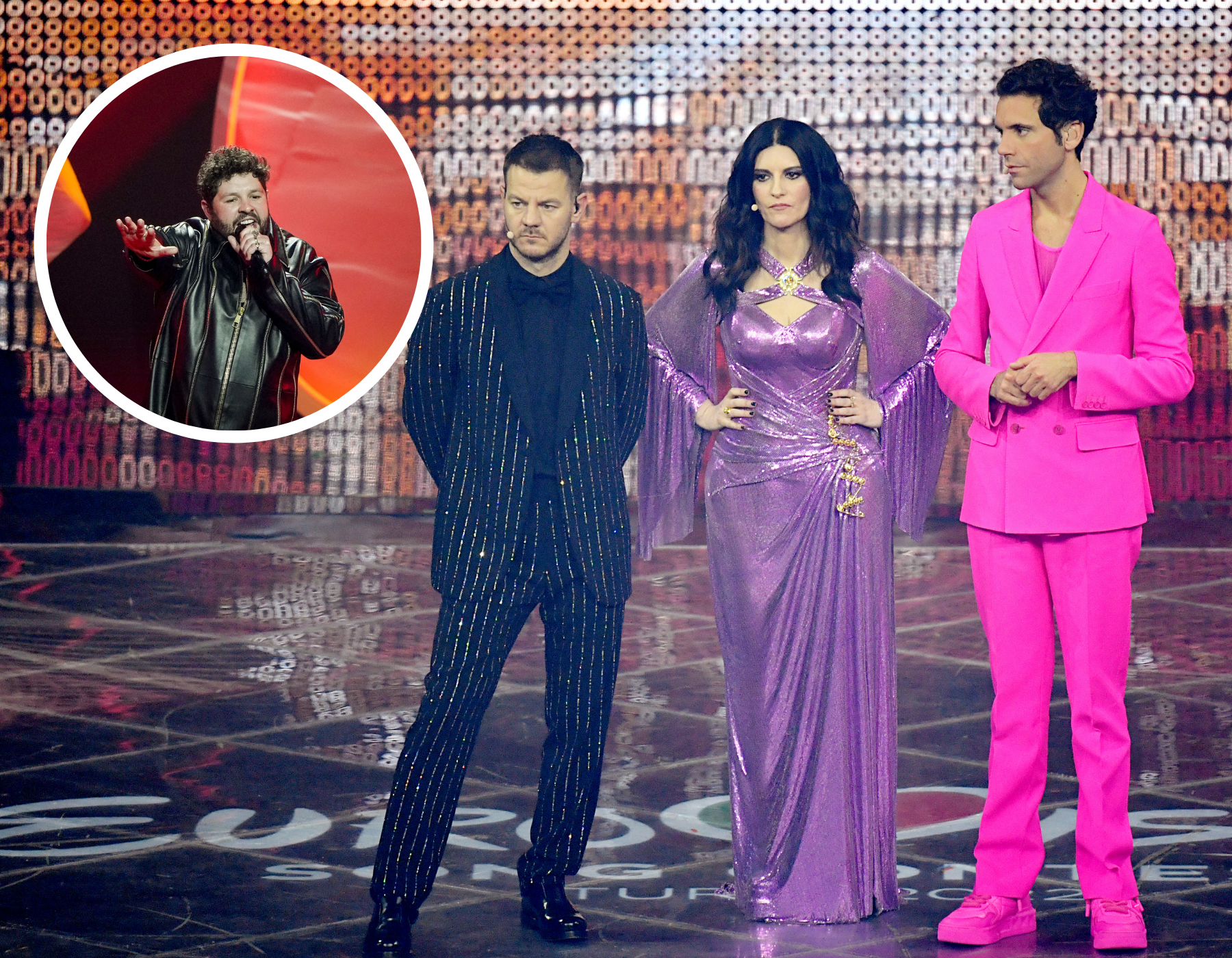Eurovision voting has nothing to do with Brexit – get over it
Once you start thinking of Eurovision through a political lens, it is very hard to stop


Your support helps us to tell the story
From reproductive rights to climate change to Big Tech, The Independent is on the ground when the story is developing. Whether it's investigating the financials of Elon Musk's pro-Trump PAC or producing our latest documentary, 'The A Word', which shines a light on the American women fighting for reproductive rights, we know how important it is to parse out the facts from the messaging.
At such a critical moment in US history, we need reporters on the ground. Your donation allows us to keep sending journalists to speak to both sides of the story.
The Independent is trusted by Americans across the entire political spectrum. And unlike many other quality news outlets, we choose not to lock Americans out of our reporting and analysis with paywalls. We believe quality journalism should be available to everyone, paid for by those who can afford it.
Your support makes all the difference.There is nothing those who spend far too much time thinking and tweeting about politics like more than a chance to look like they’re engaging in a national cultural event (one everyone else might also be talking about). The word “hinterland” is flashing like a neon sign in our hindbrains. A chance to look normal – this is all we ask.
But of course, the way politicos approach Eurovision is anything but normal. For a start, we don’t *really* care who wins or who has the best song. But, my God, do we care about how that decision is reached!
Endless discussion is there to be had about the “differential voting system”, a ranked choice way of deciding who gets the 12 and who gets nul points.
You can tell a political nerd at a Eurovision party. They’re the one who milled around talking loudly during the performance half of the show. But during the second half, they are now sat rapt in front of the telly and several spreadsheets as they try to impose a sense of political order on the pop choices of Moldova, Malta and Montenegro.
To be fair to us geeks, if you were to create in a lab something designed to look like a cultural festival but actually be specifically attuned to every possible sensitivity of a cultural war, this is precisely what it would look like.
For a start, Eurovision has long been claimed as part of the LGBT community’s culture. Something most people have always enjoyed – bringing the campness of the whole affair to the fore. But for Hungary and its increasingly reactionary government, this all proved too much and it pulled out of the contest in 2019.
While there was no official reason given, a pro-government journalist referred to it as a “homosexual flotilla”, reflecting the broadly anti-LGBT stance of their government and state broadcaster whose schedules confirm they will not be broadcasting the spectacle this year.
Secondly, and there is no getting away from this. Eurovision is a big giant party celebrating (largely) European cooperation and integration. Dust off your blue and yellow berets, #FBPE folk – this one’s so much for you it hurts.
This may be a contest, but it is one designed to foster better relations between the countries of Europe and the flag of the EU will be on prominent display in Turin, Italy. As it will be at Eurovision parties across Remainerland.
This is also a chance, once a year, for those of us who deeply regret Brexit to come together and rejoice at still being a part of one European institution.
But what is so European about the European Song Contest anyway? A reasonable repost from those on the right who want to enjoy the show without being seen to be enemies of the people of Britain. This is now, after all, a contest that includes Israel and Australia, so it is pushing the definition of “European”.
Then again, there is the latest iteration of the voting system. Since 2016 each country awards two sets of scores – those of the voting public and those of a panel of experts. These scores have equal weight. Yeah, can’t see that ever causing a controversy as the public clamour for Crazy Frog-style songs and the experts go for the worthiest, dullest, but most technically proficient entry they can find.
To keep up to speed with all the latest opinions and comment, sign up to our free weekly Voices Dispatches newsletter by clicking here
You see, once you start thinking of Eurovision through a political lens, it is very hard to stop. And that’s true of the countries taking part, too. It may seem like it’s all in good fun, but can you imagine the international tensions on those rare occasions when Greece and Cyprus don’t award each other the maximum 12 points?
The wider audience are not immune either. This year’s contest feels more like a foregone conclusion than most. In an extremely well-meant act of international solidarity, Ukraine are the vast favourites to win. A lovely moment for the world to show its solidarity.
Of course the upshot of this will be Ukraine being under obligation to host a vast, expensive logistical and security nightmare of an event at a time when its resources might be better focused elsewhere. A hell of a political hangover? In the words of Gina G (who was robbed, by the way) – just a little bit.
Join our commenting forum
Join thought-provoking conversations, follow other Independent readers and see their replies
Comments